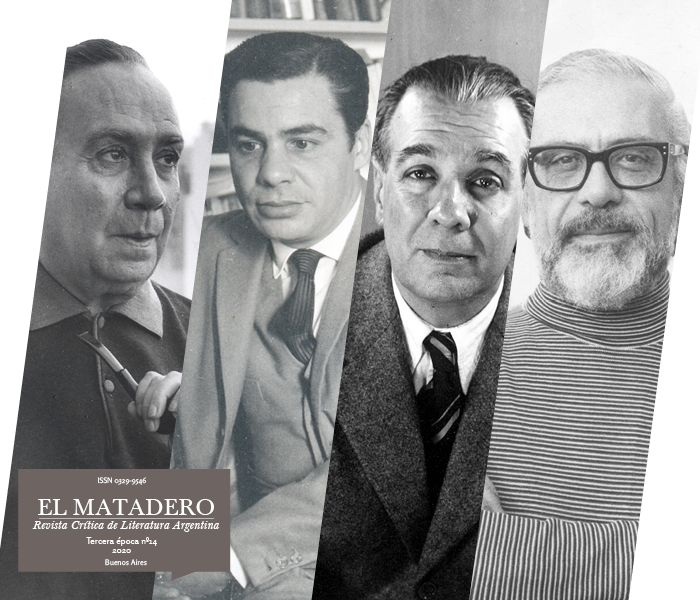1970 in Argentine Magazines and Periodicals: Between Marechal and Borges
Abstract
This article proposes some hypotheses about the contemporary reception of the two most important books of Argentine literature that were published in the mid-1970s —Megafón, o la guerra, by Leopoldo Marechal, and El informe de Brodie, by Jorge Luis Borges—, shortly after the political fact that marked a before and after in the history of Argentine politics: the kidnapping and death of General Pedro Eugenio Aramburu by Montoneros on May 29, 1970. The hypothesis of the work maintains that this unique fact and exceptional, as Beatriz Sarlo describes in La pasión y la excepción, is manifested both in the uncomfortable reception of the two books, written prior to their publication dates, as well as in the political uses and ideological interpretations that mark their readings. For this, the article assembles the map of the magazines that circulated in 1970, the first area of reception of the books, in which the axes of the political and revolutionary discussion were being settled, both in the political-ideological magazines —Cristianismo y Revolución, Propósitos o Pasado y Presente— and the great weeklies —Primera Plana, Confirmado, Panorama, Gente, Siete Días—, as well as in the cultural magazines: El Escarabajo de Oro, Envido, Los Libros, Macedonio, Nuevos Aires , Sur, Testigo, whose pages were crossed, with rare exceptions, by the heightened ideological debate.Downloads
References
Balderston, D. (1996). ¿Fuera de contexto? Referencialidad histórica y expresión de la realidad en Borges. Rosario: Beatriz Viterbo.
El Escarabajo de Oro, nº 41. (noviembre de 1970). “Fiesta para Marechal”, 27-28.
Heker, L. (noviembre 1970).“Editorial para un número uno”. El Escarabajo de Oro, nº 41, 2.
Kohan, M. (2003). “El enigma de Guayaquil: el secreto de la Argentina”. Variaciones Borges, nº 16.
Los Libros, nº 8. (mayo de 1970) “Editorial. Etapa”, 3.
Los Libros, nº 15-16. (enero-febrero 1971). “En este número”, 3.
Mascioto, M. de los A. (2017). “Nuevos Aires, un proyecto político cultural (1970-1973). Entrevista a Mario Goloboff”. Orbis Tertius, nº 26.
Nuevos Aires, nº 1. (junio-julio-agosto de 1970). “Para contribuir a la confusión general”, 53.
Nuevos Aires, nº 2. (septiembre-octubre-noviembre de 1970). “Editorial. Leopoldo Marechal”, 2.
Núñez, Á. (1968). “La novela experimental: Marechal”. Capítulo. Historia de la literatura argentina, nº 47.
Núñez, Á. (noviembre 1970). “La última novela de Leopoldo Marechal. Argentina fracasada y su guerra necesaria”, Los Libros, nº 13, 6-7.
O’Donell, M. (2020). Aramburu. El crimen político que dividió al país. El origen de Montoneros. Buenos Aires: Planeta.
Panesi, J. (1985). “La crítica argentina y el discurso de la dependencia”. Filología, nº 1.
Panorama, nº 155. (14-20 de abril de 1970).
Peller, D. (2012). Pasiones teóricas en la crítica literaria argentina de los años setenta. Tesis de Doctorado. Buenos Aires: Facultad de Filosofía y Letras, Universidad de Buenos Aires.
Sarlo, B. (2003). La pasión y la excepción. Buenos Aires: Siglo XXI.
Stilman, E. (29 de septiembre de 1970). “La pelea de Troiani”. Primera Plana, nº 400, 48-49.
Verbitsky, B. (1975). Literatura y conciencia nacional. Buenos Aires: Paidós.








